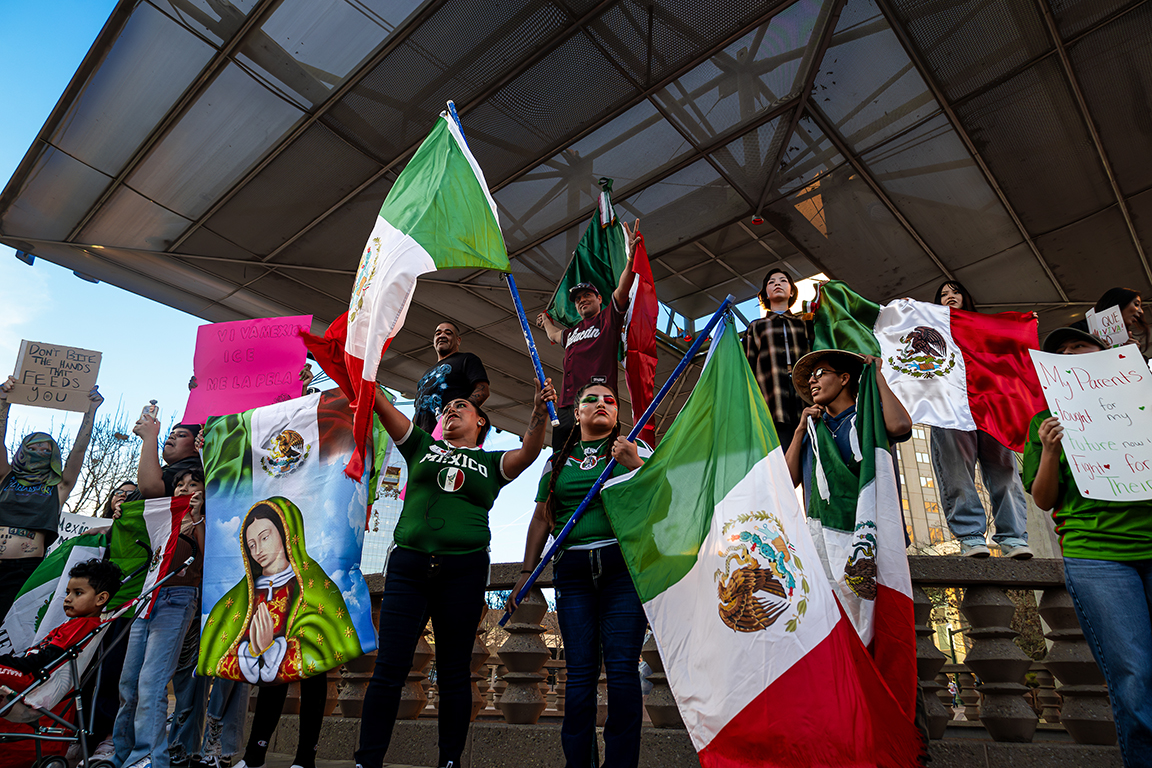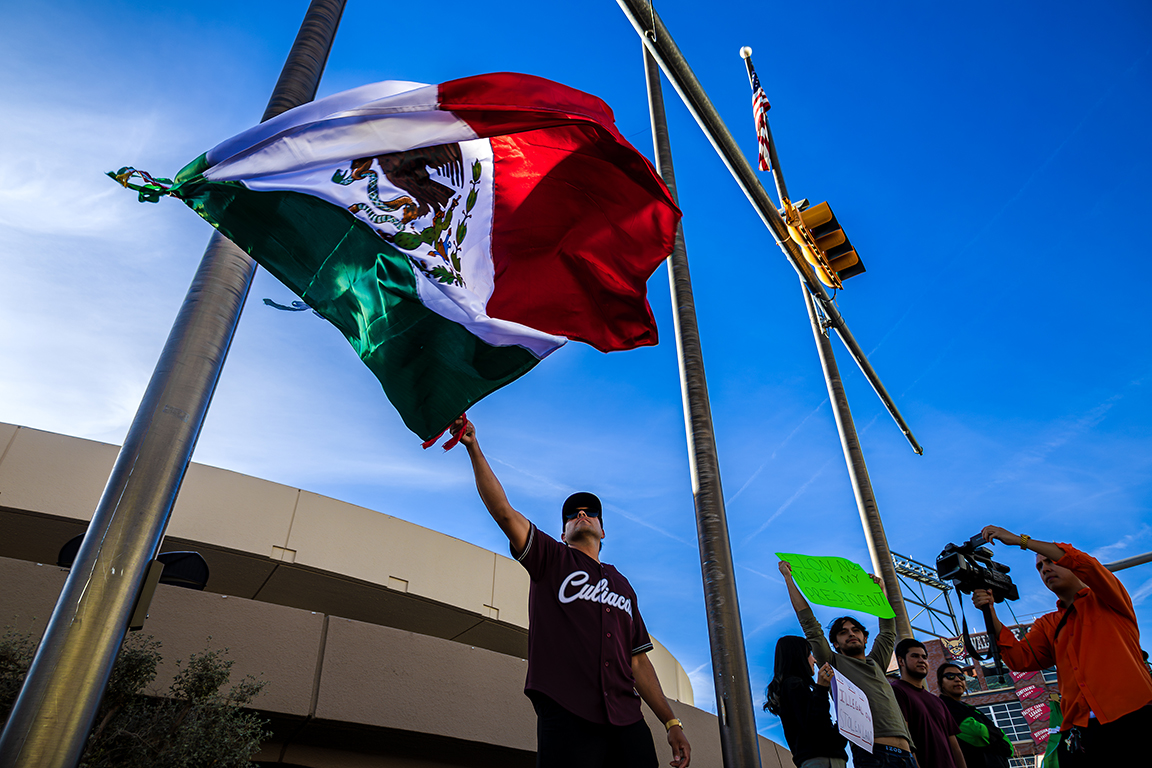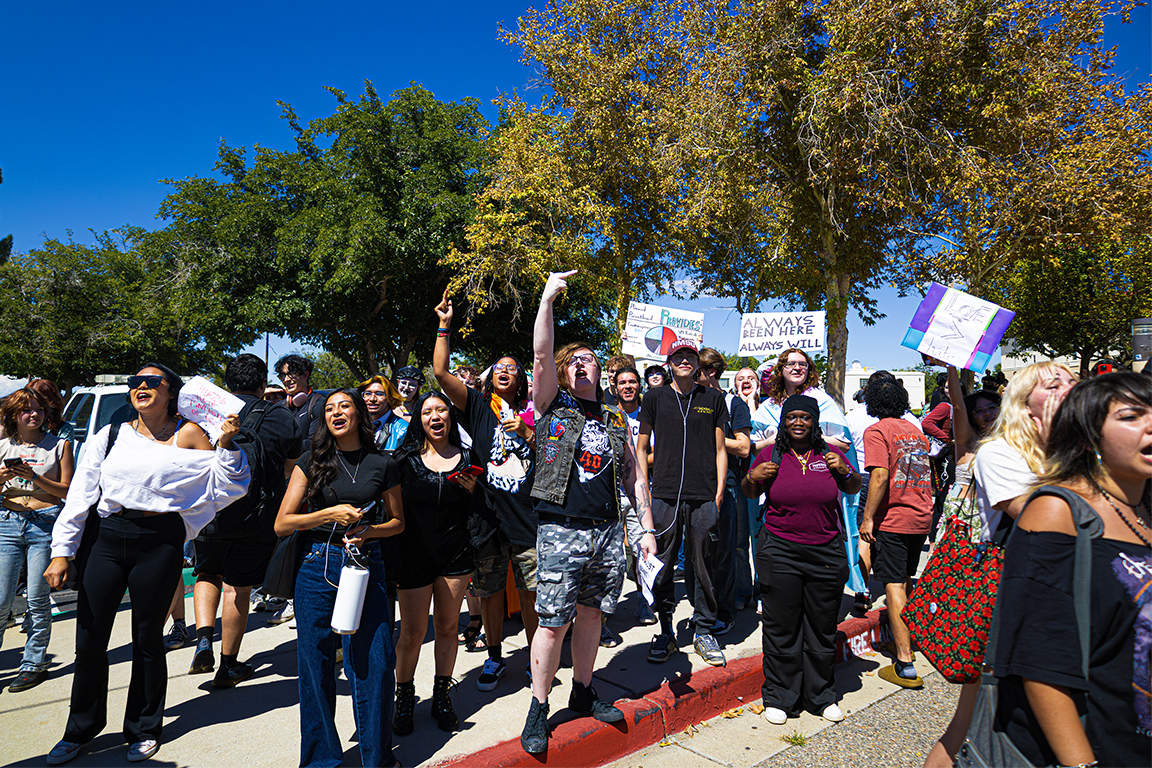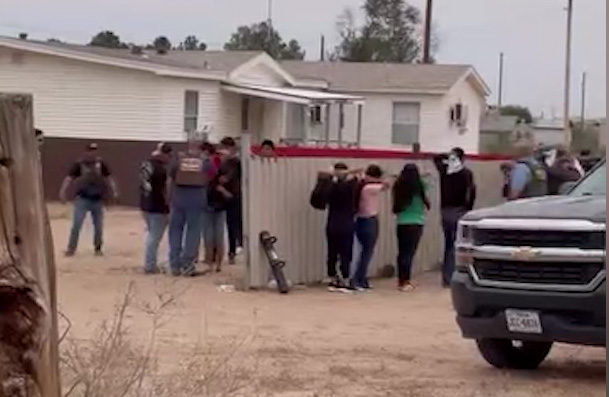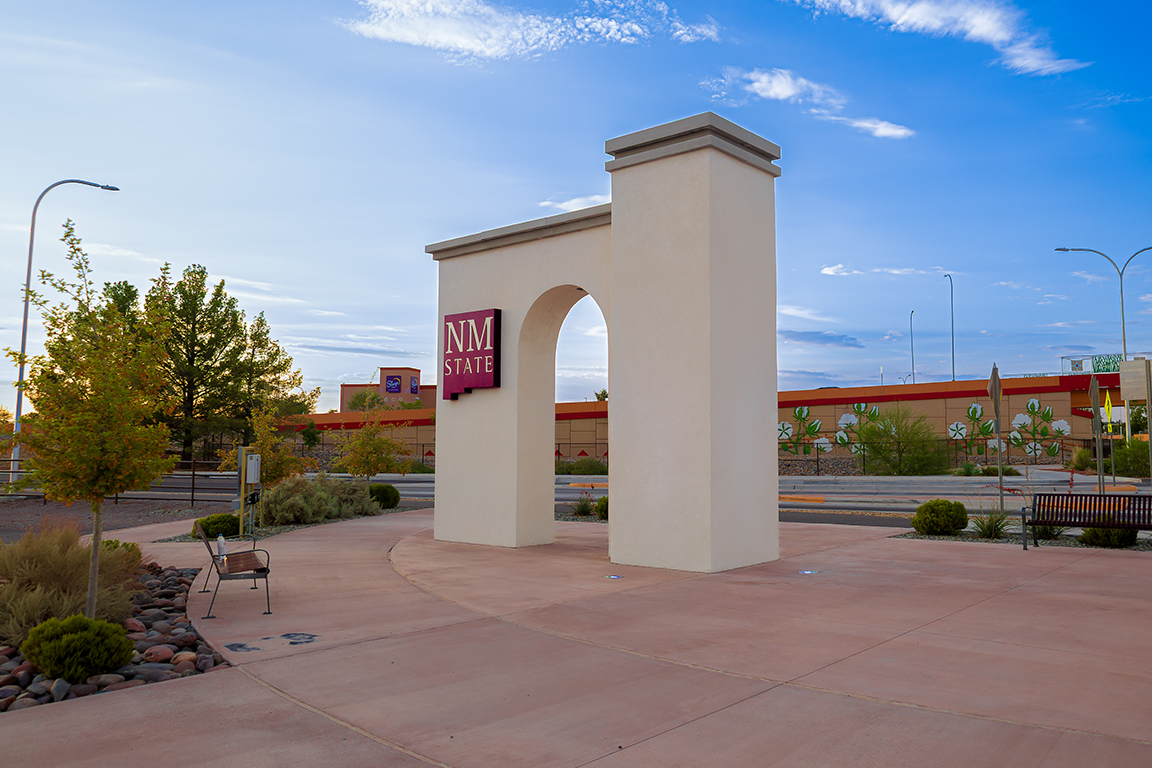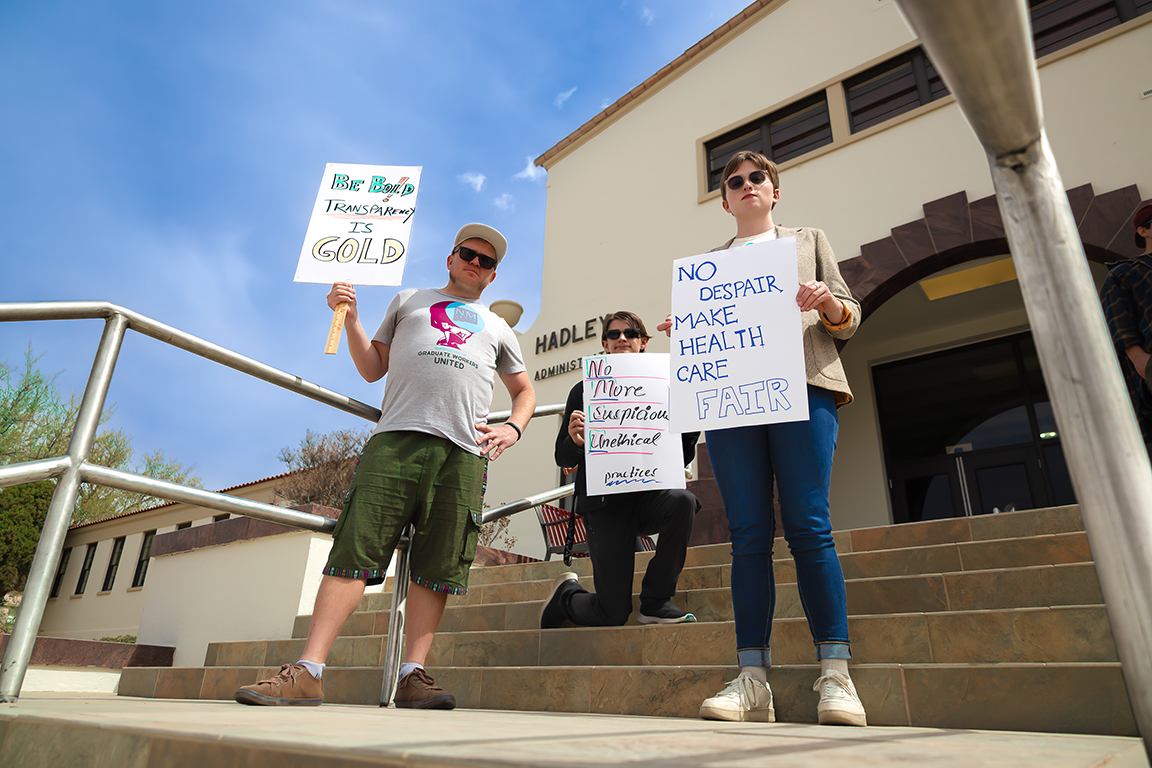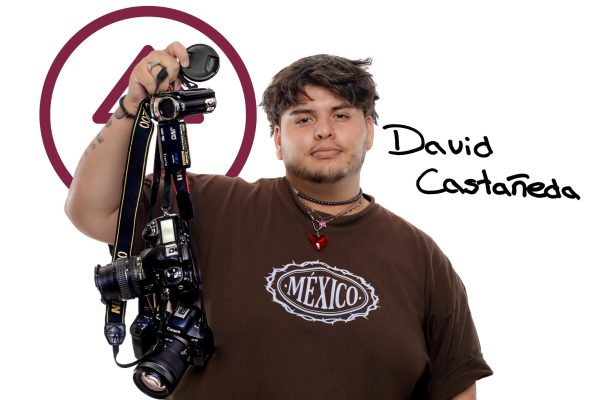On Monday, Feb. 3, members of the borderland community protested in downtown El Paso against U.S. President Donald Trump’s anti-immigration policies. The protesters gathered near the El Paso Museum of Art at 3:30 p.m. and made a loop around the downtown district, ending at San Jacinto Plaza.
The protest took place on “A Day Without Immigrants”, a national movement including protests and boycotts in response to executive orders the president has signed. Since the inauguration on Jan. 20, Trump has signed executive orders declaring a national emergency on the southern border, banning apps used to facilitate asylum appointments, and redefining how birthright citizenship in the 14th Amendment is interpreted.
NMSU student and artist Citlali Delgado said although she isn’t surprised by Trump’s actions, she is determined to keep fighting.
“I just feel like as a new generation, there’s no way we can slow down from all the progress that we have made and what my ancestors set out for …” Delgado said.
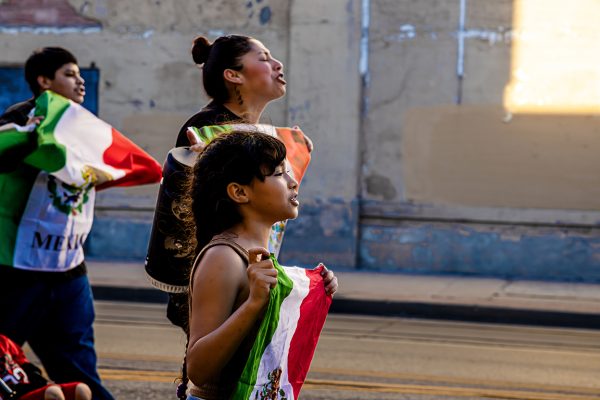
A theme of the protest was standing up for those who can’t stand up for themselves. Mariana Ibarra said her parents and husband were unable to come to the protest, but she protested on their behalf.
“I came to show that even though they can’t be here, me and my son, who’s currently in my womb, are gonna protest and stand up for them,” Ibarra said.
Jadri Valle said they hoped people wouldn’t take the protesters’ message lightly and would understand the severity of the situation.
“Muchas personas se lo están tomando como qué es una tendencia, que nomás salgamos a marchar y alzar la voz siendo porque pos en realidad no es así es una urgencia, la verdad, lo que está pasando es algo muy feo y no cualquier persona se merece esto,” Valle said.
(Many people are taking this as a trend, that we just come out to march and raise our voices, but well, that’s not the case — this is an emergency. Honestly, what’s happening is something very ugly and no one deserves this.)
For many protesters, the issue of immigration was personal. Sarah Reyes’ mother was deported when Reyes was seven years old. Reyes said when she turns 21, she hopes to help her mother with her immigration paperwork, which she said her mother has been trying to fix for 14 years.

“I know how it feels, and I needed her the most, and I didn’t have her,” Reyes said.
Aly Ornales said she decided to join the protest because her grandfather was an immigrant who worked in the cotton fields to give her mom a better life. Ornales held a sign reading, “Protect the hands that feed you,” with an image of Our Lady of Guadalupe in place of an eagle on the Mexican flag.
“A lot of these field workers, they’re not criminals,” Ornales said. “They have no criminal record. They’re here trying to help their families. A lot of us would not have food on our table without them: fruit, vegetables, everything that we use on the daily comes from a lot of these immigrants that are here. So, for us to just call them criminals and to deport them is just idiotic to do.”
Joselyn Marquez came to the protest wearing a keffiyeh, a traditional Middle Eastern headdress. Marquez, who has Arabic roots, said she saw a connection between the Mexican and Palestinian causes because they are both fighting for freedom.
“Mexicans are very strong-willed, just like the Palestinians — very strong-willed,” Marquez said. “We are powerful people. We’re not going anywhere, and we’re here to stay.”
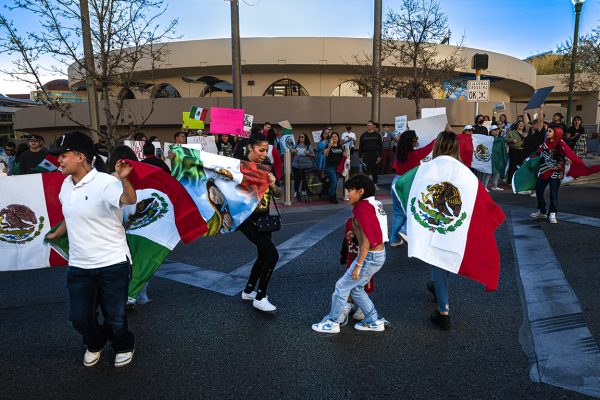
People of many different ages came to protest. There were even some families and children.
“It’s very heartbreaking sometimes, because I see kids that are here by themselves, but they’re doing it for all the right reasons, and I don’t know, I just feel like it’s very heartwarming and touching,” Ibarra said.
As they marched around the downtown district, people recorded from the sidewalks and storefronts. Cars honked and drivers waved and gave the protesters a thumbs-up as they passed. The protest grew as more people joined while they went through downtown El Paso. Valle described the feeling of community from being with everyone else protesting.
“. . . yo pensé que iba a ser la única persona que iba a venir y al parecer no, al parecer. Hay muchas personas que sí les importa su comunidad y pues no nomás como comunidad sino también como hermanos mexicanos que en verdad somos,” Valle said.
(. . . I thought that I would be the only person who would come and apparently not, there are many people who care about their community and not only as a community; also as Mexican siblings that we really are.)


